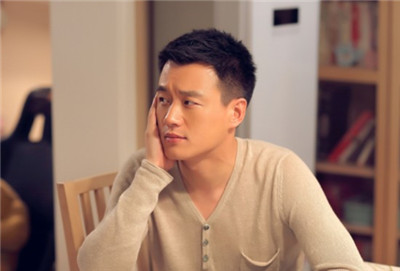(单词翻译:单击)
All over the world, the middle classes take temporary leave of their senses when they bear their first child and especially when junior is ready to start school. We all know about China’s Tiger Mums, but as far as I can see, other countries have ferocious felines too.
世界各地都一样,当中产阶层的父母养育第一个孩子时,尤其是当孩子准备开始上学时,都会一时丧失理智。我们都听说过中国的虎妈,不过据我所知,其他国家也不乏这种凶猛的“猫科动物”。

Chinese mums are not the only ones loading their tiny ones up with after-school classes, to make sure they do well in college entrance exams (China’s own version of this — the dreaded gaokao — finishes on June 9).[NB CHINA’S COLLEGE ENTRANCE EXAMS RUN JUNE 7-8 IN MOST PARTS OF THE COUNTRY, HENCE THE REFERENCE TO HOW IT HAS “JUST FINISHED” ON JUNE 9]
并不是只有中国妈妈会带着小孩去上补习班,确保孩子在大学入学考试中取得好成绩。就在6月9日,可怕中国的大学入学考试——高考,刚刚结束。
I sent my first daughter to pre-school at 20 months, convinced that if she waited to start with all the other two-year-olds, she would never get into Harvard.
我大女儿1岁8个月大时,我就送她去了幼儿园。当时我相信如果等她两岁再跟其他孩子一起入托,她肯定永远考不进哈佛大学(Harvard)。
By that time, she had already completed courses in baby music, baby swimming, baby gymnastics, baby Chinese (and doubtless some other dumb thing that I have since forgotten about). Last week she finished sitting final exams for her first year of high school. I am not prepared to disclose the results but I think I can safely say that I could have waited on the whole pre-school thing — at least until she could talk.
其实在入托前她已经上完了许多课程,包括婴儿音乐、婴儿游泳、婴儿体操、婴儿汉语……我肯定还为她做了其他很蠢的安排,不过我已经想不起名字了,因为实在太蠢了。上周她刚考完了高一最后一门期末考试。我并不准备公布她的成绩,但我可以肯定地说,我其实没必要那么早送她去幼儿园——至少应该等她能说话时再送。
It seems I am not the only one having a rethink on the idea of academic training for toddlers though, even in China. One of the most popular series on Chinese television recently was Tiger Mum and Cat Dad, about that perennially tortured topic: does ferocity or meekness produce the best gaokao scores? The child in the series has a nervous breakdown due to too much homework pressure: I guess that is your answer. It seems it is no longer so obvious that it is a good idea to start cramming kids for university entrance in the same week you take them out of nappies.
现在看来,即便是在中国,反思幼儿学习培训的观念的人并不只有我一个人。最近中国的一部热播电视剧《虎妈猫爸》探讨了一个长期困扰着家长们的话题:到底是该严厉还是温和,才能让孩子取得最好的高考成绩?我猜人们会回答,这部电视剧里的孩子由于作业太多,压力太大而患上抑郁症。对于家长来说,让刚摘掉尿布的婴儿早早开始填鸭式高考教育,似乎不再是个好主意。
“Parents born in the 1980s, unlike their predecessors, are more aware of the importance of the happiness of their child at kindergarten, instead of just the development of their academic capacities,” the official China Daily quoted the general manager of Kids R Kids in China as saying.
官媒《中国日报》(China Daily)援引Kids R Kids驻华总经理的话说:“80后父母与上辈人不同,他们更能意识到孩子去幼儿园更重要的是快乐,而不再仅仅关注孩子学业能力的进步。”
They would say that, wouldn’t they, since Kids R Kids is a US early education company whose motto is “hug first, then teach”. You can’t sell that kind of thing to Tiger Mum — but there must be more Cat Dads out there than before. Otherwise who will Kids R Kids peddle classes in things like infant sign language and “lying on the belly with friends” to?
当然了,人们肯定会说,这是因为Kids R Kids是一家美国早教公司,其座右铭是“先拥抱孩子,再教授知识”。虎妈是不会接受这套说辞的,不过现在的猫爸肯定比以前多。否则Kids R Kids向谁推销譬如婴儿手语,“与朋友们趴着玩儿”这类课程呢?
The government also seems to be more on Cat Dad’s side these days: changes in official education regulations introduced in Shanghai this year halved the number of children interviewing for slots in highly competitive private kindergartens and primary schools, according to state media. Shanghai Daily said the goal was to “ease the parent frenzy about getting offspring into the best schools”. Sounds like feline fathers are getting the upper hand there, too.
近来政府似乎更站在猫爸的一边:根据中国官方媒体的报道,今年上海出台教育条例改革,使竞争极为激烈的民办幼儿园和民办小学的入学面试报考人数减半。《上海日报》(Shanghai Daily)表示,改革的目标是“缓解家长对于择校的焦虑心态”。听起来,猫爸们似乎逐渐占了上风。
State media gave this as an example of the kind of question primary school interviewers might ask: You have a 5m pole. If you take a deep breath and climb up 2m, but then slip down 1m each time, how many deep breaths will you have to take before reaching the top?” I’m glad they didn’t ask my high schooler that.
对于参加小学入学面试的孩子们要回答的问题,官方媒体给出了一个例子:有一个5米的爬杆。如果你深吸一口气能爬高两米,但每次都会滑下1米,你需要深呼吸几次才能爬到杆顶?我很高兴我上高中的孩子过去没被问到这个问题。
Yang Huiyu is a young dad with a child entering primary school next academic year, and he thinks pre-school cramming is a waste of money: he holds up a maths test from such a school — which even includes a few algebra questions — and points out that children only have a limited period to answer the questions. Not for him, he says: “It’s just a matter of time, my child will learn this in school anyway,” adding that if his son is given more than an hour and a half of homework per night, “I’ll ask him to take the unfinished work back to the teacher.”
杨辉宇(音译)是一位年轻的父亲,他的孩子下学年就要上小学了。他认为学前填鸭式教育完全是浪费钱:他拿起一张这种学校提供的数学测试题,里面甚至包含几个代数问题,他指出孩子们只有有限的时间回答这些问题。他不认同这一做法,说:“这只是时间问题,我的孩子迟早会在学校里学到,”他还补充说,如果儿子每天晚上的作业量超过了一个半小时,“我会让他把没完成的作业还给老师。”
Like many Chinese parents these days, he plans to administer after-school education himself — in a fun way. “I can teach him about physics by telling him the story of Archimedes while he’s in the shower,” he says. I hope my kids learnt that at school, since I surely wasn’t up to teaching them physics at bath time (and if you’re rusty on it, I can suggest a good infant cram school). Will he send his son for extra lessons after he finishes his primary school day? “Definitely not, unless he wants to,” says Mr Yang. Don’t let Tiger Mum hear you say that.
和现在的很多中国家长一样,他计划自己给孩子实施课后教育——用一种寓教于乐的方式进行。他说:“他洗澡的时候,我会给他讲阿基米德的故事,教他物理知识。”我希望我的孩子能在学校里学到这些,因为我过去肯定没打算在孩子洗澡的时候教他物理(如果你的物理生疏了,我可以给你推荐一个很好的幼儿补习班)。我问他会不会在孩子放学后送他去补习班?“绝对不会,除非他自己想去,”杨说。这番话可不能让虎妈听到。


